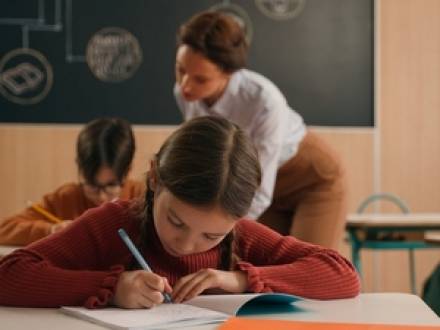What Happens if My Ex and I Disagree About School Decisions?
Posted on September 20, 2024 in Child Custody and Support
 Many couples who get divorced find that learning to adjust to post-divorce life is the hardest part of the process. For divorced parents, that includes working together to make decisions about their child. Finding a way to compromise on important issues can be difficult, especially right after divorce when tensions and emotions tend to run high.
Many couples who get divorced find that learning to adjust to post-divorce life is the hardest part of the process. For divorced parents, that includes working together to make decisions about their child. Finding a way to compromise on important issues can be difficult, especially right after divorce when tensions and emotions tend to run high.
As the new school year kicks off, divorced parents may find themselves disagreeing about where to send their child or other education-related issues. Many assume that whoever the child lives with gets to make such decisions. While the answer is related to child custody, it is not that simple. In this article, we will discuss child custody in Illinois, how to settle disagreements about a child’s education, and how to contact an experienced Illinois child custody attorney.
How Does Child Custody Work in Illinois?
Child custody consists of two parts:
- Parenting time: This is the time a parent spends with a child, or what is sometimes referred to as physical custody. Deciding which parent the child stays with is a parenting time decision.
- Legal custody: This refers to the parental responsibilities of making major decisions for the child, specifically in the areas of health, religion, and education.
Both parenting time and legal custody can be split between the parents, and Illinois law prefers it that way by default. Parents can divide child custody by coming to an agreement between themselves and entering the provisions of that agreement into a document called a parenting plan. The parenting plan is then submitted to the court for review. If the court approves it, the parenting plan becomes legally binding.
If parents cannot agree on how to divide child custody, a court will decide for them. A judge will issue a parenting plan that divides parenting time and legal custody in a way the court sees fit.
Which Parent Can Make Decisions About the Child’s Education After Divorce?
The best way for divorced parents to make decisions about their child’s education is to communicate effectively. If that cannot be done and the parents need to know which of them has the final say, they can refer back to the parenting plan.
The parenting plan will contain provisions for who is responsible for educational decisions. Sometimes the parental responsibilities are split so that one parent is responsible for two areas and the other parent is responsible for one. Other times, one parent is responsible for all three, and the other parent receives more parenting time. Either way, decision-making about education is usually under the purview of one of the parents.
What if My Ex Is Making the Wrong Decision About Our Child’s Education?
If your ex is responsible for making educational decisions for your child, then he or she has the final say. It can be difficult to accept this, especially if you feel your co-parent is making the wrong decisions. But as mentioned, the parenting plan is legally binding.
However, if you feel your ex is making a decision that threatens your child’s well-being, you may be able to petition the court to change the parenting plan. This is called post-divorce modification and is not easy to do. The court will only consider making modifications if it would clearly be in the child’s best interest.
Contact a Kane County, IL Child Custody Attorney
Sharing child custody can be difficult at times, even for parents who are on good terms. At The Law Offices of Douglas B. Warlick & Associates, we understand the frustrations and challenges involved with dividing parental responsibilities, and we are ready to protect your and your child’s best interests. Get personalized legal services from a Geneva, IL child custody lawyer by calling 630-232-9700 today.







 Many couples who get divorced find that learning to adjust to post-divorce life is the hardest part of the process. For divorced parents, that includes working together to make decisions about their child. Finding a way to compromise on important issues can be difficult, especially right after divorce when tensions and emotions tend to run high.
Many couples who get divorced find that learning to adjust to post-divorce life is the hardest part of the process. For divorced parents, that includes working together to make decisions about their child. Finding a way to compromise on important issues can be difficult, especially right after divorce when tensions and emotions tend to run high.